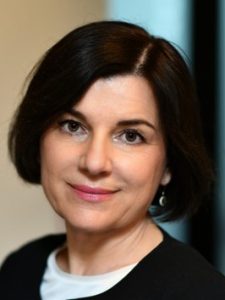
Lecturer: Jadranka Jezeršek Turnes, Kontekst Consulting
The world of science is too large for non-experts to capture it by themselves or the media alone. Covering science is much more difficult and specific than covering politics, culture or sport. The appropriate scientists can then easily solve this problem, but need to learn how to communicate well, what is the right story, context, approach to tell and to what extent they should enter into facts and details.
Established working relationships that are created in the media together with scientists not only benefit themselves, but society in general gains important insights into the world of science. In this way the whole of society (non-experts, politicians, other proffesionals and media consumers: readers, viewers, listeners etc.) creates an understanding of science, builds a positive attitude to certain scientific disciplines, receives social approval of research and stimulates curiosity and interest in science among younger generations. Science has an important mission in society. It is therefore essential for scientists to learn how to relate, participate and contribute to the related dialogue in society. They have to learn the skill to justify it and be able to explain it. Having accomplished this, science would gain more space and appear on the public agenda more often.

